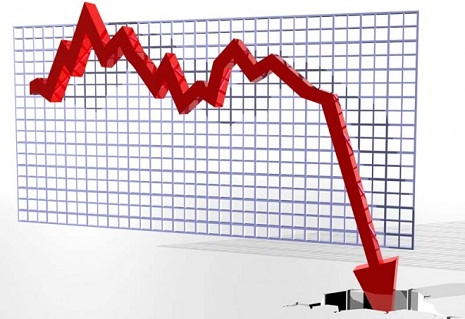Forecasts from international organizations on country`s economic growth are also not pleasant.
Some politicians blame the government for an unsuccessful economic policy that has been unable to solve country`s economic problems for many years.
Armen Martirosyan, the vice-chairman of the Heritage party, said reasons for the foreign debt do not lie in the lack of investment but in their inefficiency, Armenian media reported.
He said the recent events have shown that the money allocated for investment are scattered into the ashes.
``There is no significant progress in any sphere,`` Martirosyan said, noting that no noticeable improvement is observed in either infrastructure or the industrial sector.
Martirosyan saw the problem not in the lack of investment, but in its effective implementation, which resulted in country`s nearly five billion dollars external debt. He added that by saying ``investment``, he meant when the foreign companies without increasing public debt make investments in Armenia, but do not give money on credit.
The country`s external debt is very close to a red line, amounting to 50 percent of the gross domestic product, according to Armenia`s "Haykakan Zhamanak" newspaper.
The paper said the entire state debt of Armenia (foreign and domestic) as of early May amounted to $4,659 billion - $3,969 billion of which accounts for Armenia`s foreign debt.
Martirosyan also added that investments in the country sharply declined after Armenia`s accession to the Eurasian Economic Union.
Armenia`s membership at the EEU began on January 2, 2015. The country now sits at the same table as Russia, Belarus and Kazakhstan.
In meantime, an Armenian expert ruled out an economic growth in Armenia in the near future.
Economist Vardan Bostanjyan claimed that a dangerous system exists in Armenia and that there is no alternative to modernization other than raising taxes.
``No matter how hardly the government insists, the economic growth will not be observed in the foreseeable future, of course, unless not all leave Armenia and economic growth will not be drawn,`` Bostanjyan told Armenian media.
He added that with rising electricity tariffs, the prices for all other goods will also increase.
The Armenian government has been mulling the decision to raise the electricity tariffs for some time. Earlier, the government explained its decision to increase electricity tariffs by arguing the need to avoid bankrupting the national power company - the Electric Networks of Armenia.
The Armenian Regulatory Commission of Public Services intends to raise the electricity tariff by 6.93 drams ($ 0.002). The current tariff for Armenia stands at 41.85 drams ($0.09) per 1 kWh during the day and 31.85 ($0.07) at night.
Despite the fact that electricity tariffs in Armenia have not increased yet, some business entities, however, have already started to raise prices for their products.
In the meantime, the World Bank predicted lower growth in Armenia`s GDP in 2015. In its June report "Global Economic Prospects", the World Bank predicted GDP growth at 0.8 percent, while the prior January report forecasted a 3.3 percent growth in the Armenian economy.
More about:
















































